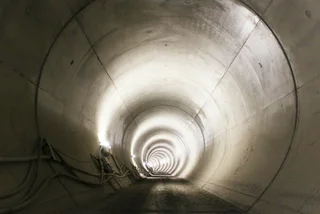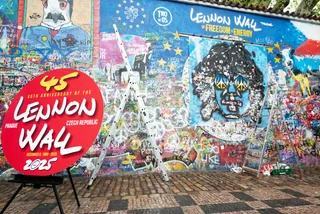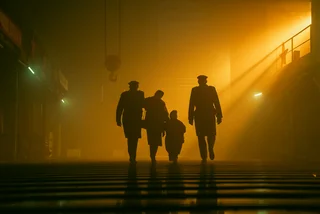A historic Žižkov building that dates back to 1903 and served as Prague's most luxurious spa complex for much of the 20th century will become the city's new House of Dance. Prague 3 revealed on Friday that city officials had approved funding to begin an architectural study at the location.
In 2020, neighboring Ponec Theatre, Prague's preeminent modern dance venue, won a tender to take over operations of the building. They plan to turn the location into the city's new House of Dance, a major cultural establishment in the area.
On Friday, city officials announced that 26 million crowns had been approved for a design study at the location. An additional 188 million crowns has been awarded by the Czech Ministry of Culture for renovations to the building under the country's National Restoration Plan.
"I'm happy that our vision of lower Žižkov as a center for various dance genres will become a reality," Ponec Theatre's Yvona Kreuzmannová states in a press release.
"The House of Dance will provide facilities for a wide range of artists, while also opening the building to the public. A connection to the bike path from Husitská Street, a cafe or wellness center, and a variety of courses, debates, workshops, and much more are also planned."
The building on Husitská street was designed by Czech architect Jindřich Motejlo and was the largest spa complex in Central Europe when it opened in the early 20th century. Emperor Franz Joseph I reportedly visited the spa while in Prague in 1907, and it won numerous accolades including a gold medal at a Spa Exhibition in Belgium.
The spa contained numerous swimming pools, steam rooms, baths and massage rooms, and a glass bridge led patrons to a restaurant on nearby Vítkov Hill. In 1909, a reported 120,000 guests visited the location.
By the second half of the last century, however, the spa fell into disrepair. After the Velvet Revolution in 1989, it briefly served as a nightclub and brothel, but it has been completely vacant since 2004.
During reconstruction of the building, its atrium will be restored, spa halls will be converted into dance halls, and a new barrier-free entrance will be created. The total cost of the project is estimated at CZK 250 million.
"Husitská street has long needed a new impetus, which will now be the creation of an international cultural institution," says Prague 3 Mayor Michal Vronský.
"In addition, we will breathe life into another empty object. All this would not have been possible without the former Prague councilor Jan Chabra and my predecessor Jiří Ptáček."












 Reading time: 2 minutes
Reading time: 2 minutes 




























